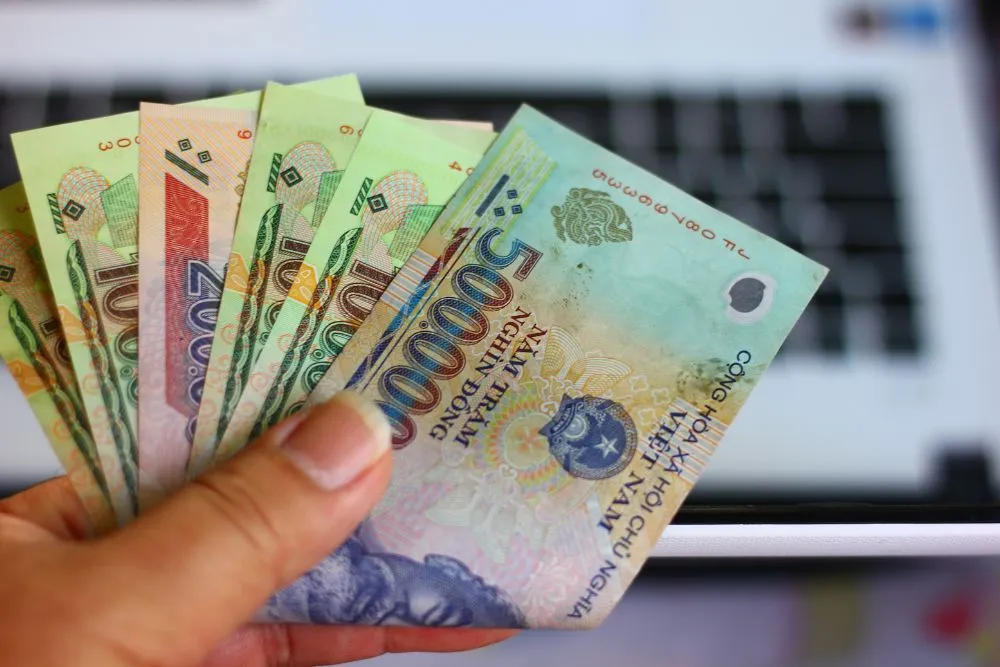Tet, the Vietnamese Lunar New Year, is not only the most significant holiday in Vietnam but also a time of heightened expectations for both employers and employees. Among these expectations is the Tet bonus, a tradition deeply ingrained in Vietnamese work culture. As the 2026 Tet holiday approaches, employers and employees alike may be wondering: is the Tet bonus obligatory in Vietnam?
In this comprehensive guide, we’ll explore the legal, cultural, and practical aspects of Tet bonuses. We’ll also provide insights into crafting an effective Tet bonus plan, ensuring employee satisfaction, and addressing challenges faced by businesses.
What is a Tet Bonus?
A Tet bonus is typically a financial reward given by employers to their employees during the Tet holiday season. Often equated to a “13th month salary,” it symbolizes recognition and appreciation for the employee’s contributions throughout the year.
For many employees in Vietnam, the Tet bonus is a key source of income to prepare for the Tet holiday, covering expenses such as family reunions, gifts, and festive meals. While bonus levels may vary between industries, cities, and companies, the tradition of providing Tet bonuses has become a widespread expectation.
Is the Tet Bonus Obligatory in Vietnam?
Legally, Tet bonuses are not strictly obligatory in Vietnam. However, there are important nuances:
The Labor Code and Tet Bonuses
According to Article 104 of Vietnam’s Labor Code, bonuses are not mandatory unless specified in an employer’s labor contract or company policies. Employers have the discretion to decide the bonus levels, which may be tied to business results, employee performance, or other criteria.
The Ministry of Labor, Invalids, and Social Affairs provides guidelines to ensure that bonuses are fair and transparent, but the law does not stipulate that every employer must give Tet bonuses.
Cultural Expectations
Despite the lack of a legal mandate, Tet bonuses are deeply rooted in Vietnamese culture. Employees in Vietnam widely expect to receive bonuses during the Lunar New Year as a token of gratitude and recognition. Failing to provide Tet bonuses may impact employee morale, satisfaction, and even retention.
Key Factors Influencing Tet Bonus Calculations
1. Salary and Tet Bonus Correlation
Tet bonuses are often based on Vietnamese employees’ monthly salaries. Employers in Vietnam typically use these formulas:
- 1x-3x VND of monthly salary depending on performance.
- Bonuses can be adjusted high or low based on the situation of the company, including profits from the previous year.
2. Working Time
Bonuses are also influenced by the length of time an employee has worked. Many businesses reward loyalty, offering higher bonuses to those who have been with the company for at least 30 days or more.
3. Production and Business Performance
The company’s overall production and business performance impacts the total bonus pool. For instance, companies in sectors like manufacturing or tech may tie bonuses directly to quarterly or yearly productivity milestones.
4. Union Members and Public Employees
Public employees or union members and employees often follow different bonus structures, as outlined by the Vietnam General Confederation of Labor. This body works with grassroots trade unions to proactively ensure fair treatment in bonus distribution.

Salary in Vietnam: Understanding Average Wages and Employment Trends in 2026
Discover the average salary in Vietnam for 2026, with insights on regional differences, industry trends, and minimum wage rates to help employers and employees navigate the evolving labor market.
Examples of Tet Bonus Levels Across Vietnam
In recent years, bonus levels have varied across provinces. For example:
- Hanoi and Danang: Employees often receive higher bonuses due to the economic activity in these regions, sometimes reaching millions of VND per bonus.
- Bonus in the province: Employees working in rural areas may receive lower amounts, typically 1x-2x their monthly salary.
When Are Tet Bonuses Given?
Tet bonuses are usually distributed days before Tet, allowing employees time to prepare for the New Year holiday. This includes expenses for celebrations, travel, and gifting.
Benefits of Providing Tet Bonuses
For Employers
- Boosts Employee Engagement: A well-thought-out Tet bonus plan encourages employees to work harder and remain loyal.
- Enhances Reputation: Providing competitive bonuses enhances an employer’s image, attracting top talent.
- Increases Productivity: Bonuses tied to performance incentivize employees to meet and exceed targets.
For Employees
- Financial Support: Many employees use Tet bonuses to cover holiday expenses, ensuring a more joyous celebration.
- Recognition: Receiving a bonus acknowledges an employee’s contributions, increasing employee satisfaction.
- Morale Boost: A bonus fosters a sense of belonging and appreciation within the workplace.
Tet Bonus Plan Key Considerations for Employers in 2025
To navigate the complexities of providing Tet bonuses in 2026, employers should keep the following in mind:
1. Legal Framework
Employers must align their bonus policies with Vietnamese labor laws and ensure they do not violate the legitimate rights of their employees.
2. Transparency and Communication
Employers should publicly announce their Tet bonus plans well before the holiday. This allows employees to plan accordingly and reduces potential conflicts.
3. Customization Based on Locality
Bonus expectations can vary by locality. For instance, workers in Hanoi may expect different bonus levels compared to those in Ho Chi Minh City or rural areas.
4. Aligning Bonuses with Business Performance
Employers should tie bonuses to their business situation and set realistic targets for employees. This ensures fairness and sustainability.
5. Addressing Financial Constraints
Companies facing challenges can consider alternatives, such as offering additional rest time, meal vouchers, or symbolic gifts instead of large bonuses.
Common Questions About Tet Bonuses
Do all employees in Vietnam receive Tet bonuses?
Not necessarily. While many companies provide Tet bonuses to employees working full-time, part-time workers or contractors may not be eligible. Policies often specify that only employees who have worked for the employer for a certain period are entitled to bonuses.
Can bonuses be revoked?
In some cases, bonuses may be reduced or withheld if employees fail to meet performance expectations or violate company policies.
How do bonus levels compare to previous years?
The previous year often serves as a benchmark for determining bonus levels. For example, 2022 saw higher bonuses in certain sectors, while 2024 bonuses were impacted by economic challenges.
How to Ensure Employee Satisfaction During Tet
Fair Bonus Distribution
Employers should ensure that bonuses are distributed fairly and transparently, considering factors such as working time, job completion, and business results.
Encourage Employee Engagement
Beyond bonuses, employers can foster employee engagement by organizing Tet celebrations, offering flexible work schedules, or providing additional perks.
Plan Ahead
A well-structured Tet bonus plan requires early planning and budgeting. Employers should allocate a portion of their revenues throughout the year to ensure they can meet employee expectations during the 2026 Tet holiday.
Sample Tet Bonus Plan Structure
1. Eligibility Criteria
- Applicable to employees who have worked for at least 1 month (applicable to employees on probation or permanent contracts).
- Employees must have adhered to the company’s working hours and policies.
2. Bonus Levels
- Bonuses Based on Salary:
- Base bonus: 1x month’s salary for all employees.
- Additional increments: Up to 3x month’s salary, depending on performance and working conditions.
- Performance-Based Bonuses:
- Employees with high productivity or those who consistently work overtime are eligible for an additional bonus.
- Company Performance Impact:
- For businesses thriving in Hanoi and urban centers, bonuses may reach the highest level, up to millions of VND per person.
- Companies facing difficulties may provide a year-end token amount, ensuring fairness without overextending budgets.
3. Timeline and Distribution
- Bonuses are distributed days for employees before the Lunar New Year to help them prepare for the holiday.
- Companies should finalize the Tet bonus plan in 2024 and communicate it by early January 2025 to ensure transparency.
4. Special Cases
- War Invalids and Public Employees: Follow specific guidelines from the Vietnam General Confederation of Labor.
- Bonuses for employees working in sectors like healthcare or logistics should consider working conditions during the holiday period.
5. Flexibility for Recruitment and Retention
To attract talent, companies may offer a Tet bonus plan as part of the recruitment package.
Bonuses can include non-monetary rewards like additional leave days for outstanding contributors.
Conclusion
While not legally obligatory, the Tet bonus remains a vital part of workplace culture in Vietnam.
As businesses prepare for the 2026 Tet, crafting a fair and transparent Tet bonus plan will be critical to ensuring mutual success. Whether your company is planning a modest bonus or aiming for the highest Lunar New Year bonus, meeting employee expectations will be key to fostering a positive and productive workplace.
If you’re an employer looking for guidance on salaries and bonuses or need assistance in aligning with Vietnamese labor laws, please contact us. Together, we can help you navigate the complexities of Tet bonus planning and ensure a happy and prosperous Lunar New Year for all.


